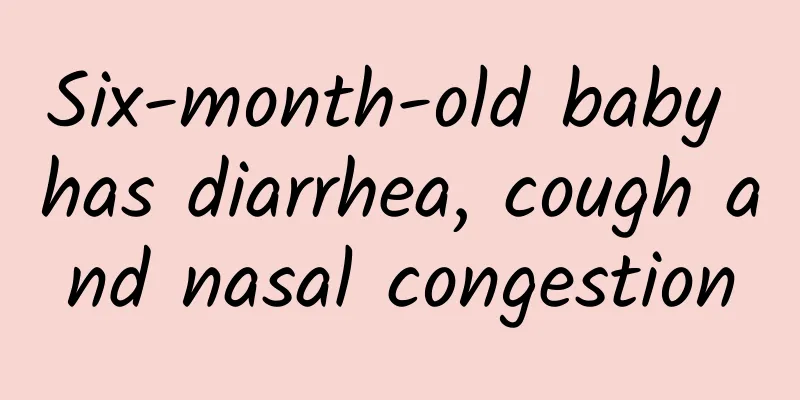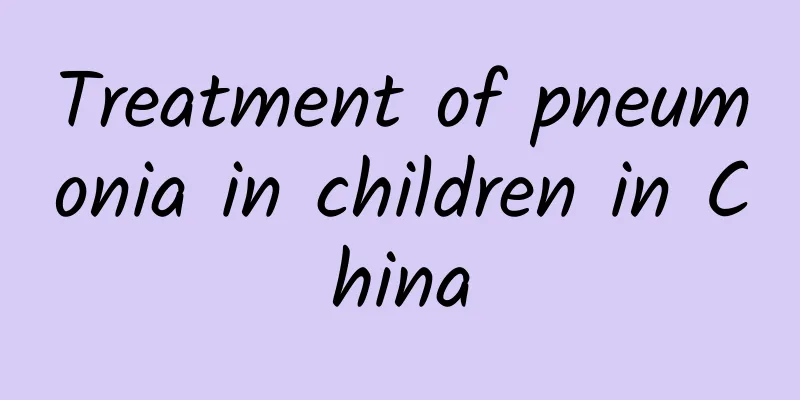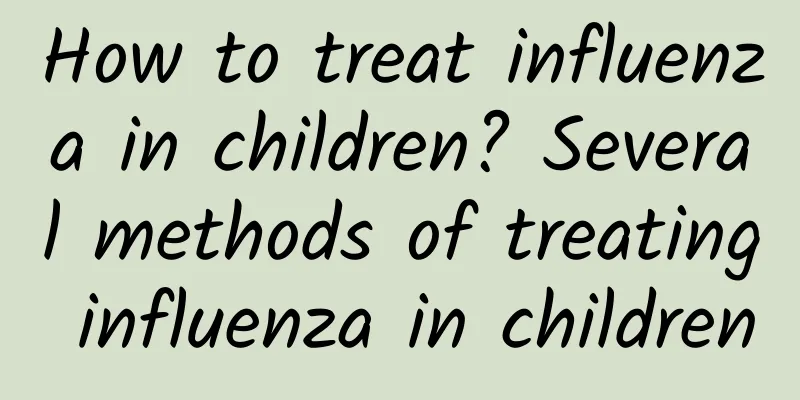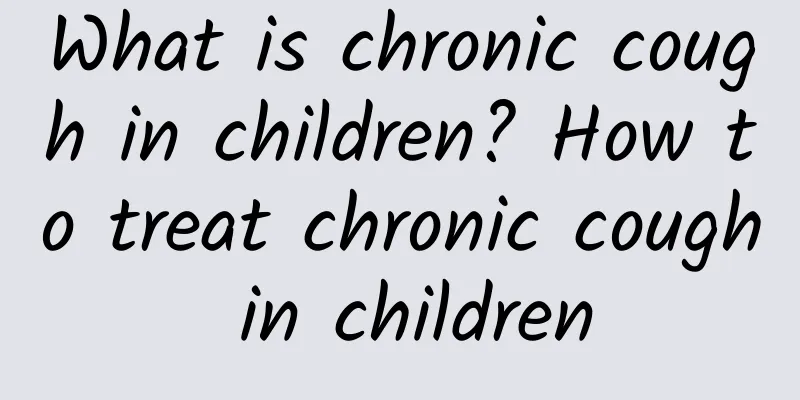Can I get hand, foot and mouth disease again if I have had it once? Can hand, foot and mouth disease recur?

|
Hand, foot and mouth disease is a disease that often occurs in infants and young children. It is also a highly contagious disease. Many people may not pay much attention to the daily hygiene of their babies and are prone to hand, foot and mouth disease. Hand, foot and mouth disease is also difficult to treat. Many parents of children who have suffered from hand, foot and mouth disease are worried that it will recur. So, can you get hand, foot and mouth disease again after you have it once? Can hand, foot and mouth disease recur? 1. Will I get it again? There is still a possibility of hand, foot and mouth disease recurring. Since there are at least 20 types of viruses that cause hand, foot and mouth disease, it is possible to get hand, foot and mouth disease again immediately after recovering from this hand, foot and mouth disease. This is not a recurrence of the last hand, foot and mouth disease, but a new virus that causes hand, foot and mouth disease, so parents should pay attention to their children's hygiene. 2. Is it dangerous to get hand, foot and mouth disease again? Generally, symptoms of hand, foot and mouth disease include mouth pain, anorexia, low-grade fever, and small blisters or ulcers on the hands, feet, mouth and other parts of the body. Most children will recover on their own in about a week. Even if they get hand, foot and mouth disease again, it will not be too dangerous as long as they are well cared for. However, there is an exception to the HFMD, which is caused by the EV71 virus and is more dangerous and has caused death. However, there is a vaccine for this highly dangerous HFMD. Parents who are really worried about their children can take their children to get vaccinated. 3. How to prevent recurrence 1. If a sick child is found, he or she should be isolated, observed and treated. Those who have contact with the child should be disinfected regularly to avoid infecting healthy children, and children in the same class should be screened for the virus. 2. Always pay attention to the hands, feet, and mouth of children. Kindergartens should conduct morning checkups on children every day, measure their body temperature, and check their hands, feet, and mouth. If a child has small herpes, they should be checked in time to rule it out. If it is not this disease, the herpes should be treated in time. 3. Children's underwear, bed sheets, and pillowcases should be changed and washed frequently to keep them clean. Clothes should be soft, loose, and comfortable. Clothes and quilts should be frequently ventilated and exposed to the sun for disinfection. Toys that children often play with should be cleaned and disinfected daily. 4. Educate children to wash their hands frequently, especially before meals and after defecation. Be sure to use soap or hand sanitizer to thoroughly clean their hands, develop a good habit of washing hands, and avoid bacterial infection. 5. During the virus epidemic, you should stay at home or in places with clean and fresh air more often, and avoid going to crowded public places. Because public places have a large flow of people and the air is not circulating, children's antiviral ability is poor, which creates a good environment for virus invasion. 4. Health Tips Hand, foot and mouth disease is a common disease in children. Parents should not be overly nervous and uneasy about it. It is crucial to take the child to the hospital for regular treatment and give the child a proper diet in time. Of course, you should pay attention to cultivating good hygiene habits in your child at ordinary times, such as washing hands with soap after going out, touching toys, before meals and after defecation, and try to avoid contact between children and other children who are already sick. These can help your child avoid the pain of the disease. 5. What not to eat 1. Avoid eating too cold or too hot food Children with hand, foot and mouth disease will develop ulcers after the herpes in the mouth breaks, which makes eating painful. The food temperature should not be too high. Eating overheated or overcold food, such as hot soup, hot pot, hot drinks, cold drinks, ice cream, iced fruit, etc., will irritate the ulcerated area and cause pain, which is not conducive to the healing of the lesions. 2. Avoid spicy food Children with hand, foot and mouth disease have herpes in their mouths that are easy to break, so they should not eat spicy food to avoid irritating the mucous membrane and aggravating the condition. They should temporarily avoid eating peppers, garlic, ginger, pepper, green onions, fried food, barbecue, and hot pot. 3. Avoid eating too salty food Children with fever and oral herpes have poor appetite and are unwilling to eat. It is advisable to feed children light, warm, delicious, easily digestible, soft liquid or semi-liquid food. Salty food, such as pickled food, salted fish, pickled vegetables, and food with strong taste, is prohibited to avoid irritating the ulcer surface and aggravating the pain and condition. 4. Avoid eating hair-raising foods The diet of patients with hand, foot and mouth disease should be light and non-irritating. They should avoid eating seafood, beef, mutton, rooster, carp, duck, goose, mango, mushrooms, bamboo shoots and other irritating foods to avoid aggravating the local rash and prolonging the course of the disease. 5. Avoid eating rough food Some parents believe that children should supplement nutrition when they are sick. In the early stages of hand, foot and mouth disease, they give their children rough and difficult-to-digest foods, such as sweet potatoes, onions, glutinous rice, bamboo shoots, etc. These foods will not only aggravate the pain in the child's mouth, but may also stimulate the child's gastrointestinal tract and affect the absorption of nutrients. |
<<: Six-month-old baby has diarrhea, cough and nasal congestion
>>: Is it normal for a child to cough when he has chickenpox?
Recommend
Does Kawasaki disease affect life expectancy?
Will Kawasaki disease affect life expectancy? Kaw...
Rehabilitation training for congenital poliomyelitis symptoms
After the onset of polio, the child's legs wi...
Scientific prevention of pneumonia in children
Pneumonia has a serious impact on people's he...
What is neonatal jaundice? Do these three things to prevent neonatal jaundice
For many new mothers, after the ten-month pregnan...
What harm does diarrhea in children cause? Revealing the three harms of diarrhea in children
If a child has diarrhea, the impact is relatively...
Look for the cause of children's colds from their parents? These folk remedies can relieve cold symptoms
Children's cold is a common disease, which po...
How to avoid diarrhea in children
There are many reasons for pediatric diarrhea, su...
Two ways to provide good care for children. What are the causes of pathological jaundice?
Neonatal jaundice refers to a disease characteriz...
How to cure diarrhea in children
Pediatric diarrhea is the second most common dise...
Should I get the hand, foot and mouth disease vaccine?
Whether to vaccinate against hand, foot and mouth...
What is the matter with the baby coughing but not fever? What should I do if the baby coughs but not fever?
Since there are many reasons why babies cough wit...
How do traditional Chinese and Western medicine treat neonatal jaundice? Remember to take measures to prevent neonatal jaundice
How should newborns with jaundice be treated? In ...
Is hand, foot and mouth disease contagious during the incubation period?
Hand, foot and mouth disease in children is conta...
What are the effects of neonatal jaundice on babies?
What impact does neonatal jaundice have on babies...
What is the cause of hand, foot and mouth disease? How to effectively prevent the occurrence of hand, foot and mouth disease
Overview of hand, foot and mouth disease: Hand, f...









